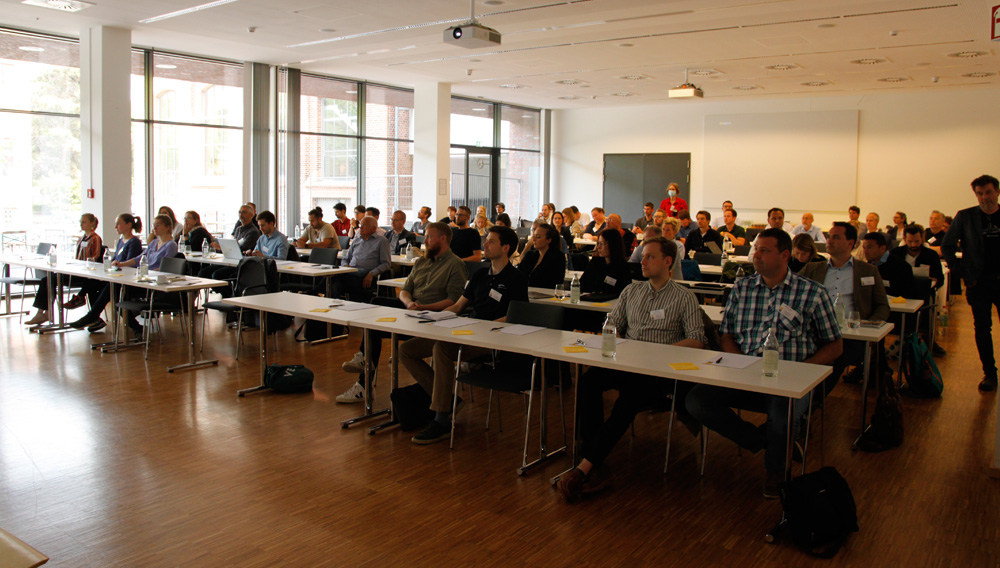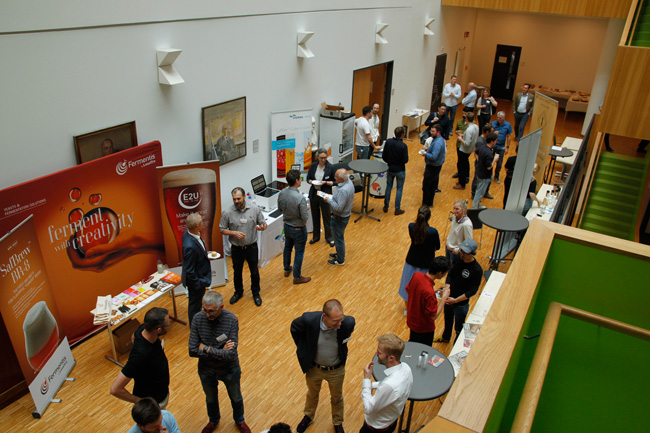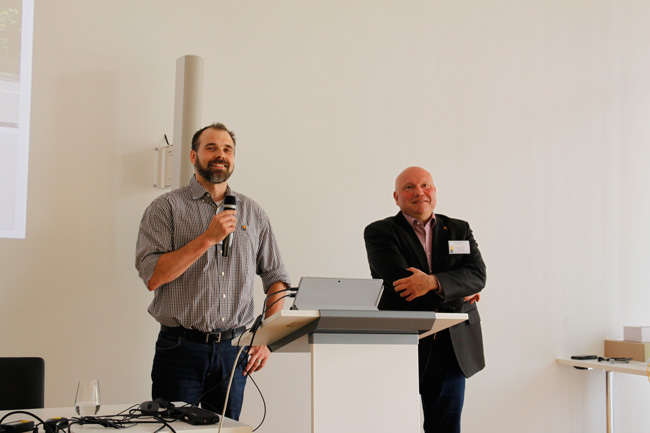Kombucha and other acidic-fermented beverages
Exciting topic | VLB Berlin invited attendees to the International Symposium for Acidic-fermented and Non-alcoholic Beverages taking place on 24 and 25 May 2022 in Berlin. This is the third time this gathering has been held, and compared to the inaugural event in 2019, the number of participants has steadily increased each time.
This year saw the lecture hall in the new building at the VLB at full capacity. In 2020, the event was conducted over the VLB Online Campus due to the pandemic. Indeed, interest in the production and marketing of novel (as well as traditional) beverages, such as kombucha or kefir, appears to be unabated.
Innovation vs. tradition
By no means have all of the questions concerning the beverage niche “acidic-fermented beverages” been answered, which had already been attested at the first event in 2019 and was once again apparent this time by the many lively discussions following the presentations. For instance, after giving his presentation, Dr. Martin Senz of VLB, the organizer of the event, posed the question regarding how acidic-fermented beverages could be classified. Should one look at the raw materials employed in the processes? The microbiology? The method of production? These are valid and practical questions, since many of these beverages are often traditionally produced but have yet to be defined in Germany’s food legislation (in the LFGB). Should the addition of flavorings, for example, be permitted in the traditional production of kombucha? The current version of the Kombucha Brewers International Code of Practice states that this is possible, but the controversy around this question has been heating up. Similarly contentious is, for example, the name “water kefir” given that the term “kefir” is reserved for dairy products (just as there is no such thing as “oat milk”).
From start-up...
Denis Kelleher of Good Culture Kombucha reported that the market for kombucha is now coming of age, at least in the U.S. It is no wonder since revenues amounting to over 4 billion USD are very tempting. Currently, growth in the U.S. is exponential. How will the European market develop? It is unclear, but consumers in Germany are increasingly able to find kombucha and other sour-fermented beverages in larger supermarket chains.
Fabio Carlucci of Roy Kombucha explained that kombucha is on its way to becoming a lifestyle beverage in Germany and is leaving behind its somewhat esoteric aura. Since its inception in 2018 in his own kitchen, Fabio Carlucci has filled over 250,000 0.33 liter cans at Roy Kombucha. For purposes of product safety, the cans are pasteurized once they have been filled. Marketing Roy Kombucha has been carried out according to a very rational approach: it is all about the brand, the flavor and no longer a story about probiotics.
... to industry and science
Equipment manufacturers have also discovered the market for kombucha. Liesa Wilsberg of Cetotec presented a fermentation vessel specifically designed for kombucha production. Available in volumes from 3 to 400 hl, the system offers full control over all relevant process parameters from aeration to measurement of alcohol.
Due to the burgeoning interest of consumers, who continue to be insatiable in their desire for new flavor experiences, the interest of science in researching novel beverages has also remained unbroken. And indeed, the technical innovations in this field are astonishing. According to Prof. Paul Cotter of Teagasc in Ireland, researchers have been able to map the entire collective genome of the communities of bacteria and yeasts which ferment kombucha or kefir, enabling them to identify the microorganisms involved down to the strain level.
The field of sour-fermented and non-alcoholic beverages remains exciting and may well prove to be of interest to brewers in the coming years. Following the renaissance of sour beers, kombucha and their ilk could prove to be a worthwhile addition to a brewer’s portfolio. The equipment required for their production is already available and merely waiting to be fully utilized. Of course, brewers would need to have no reservations about working with Lactobacillus and Brettanomyces.
Keywords
fermentation Germany non-alcoholic beverages alternative beverages conferences international brewing industry kombucha
Authors
Christian Dekant
Source
BRAUWELT International 2022
Companies
- Versuchs- und Lehranstalt für Brauerei in Berlin (VLB) e.V., Berlin, Germany



